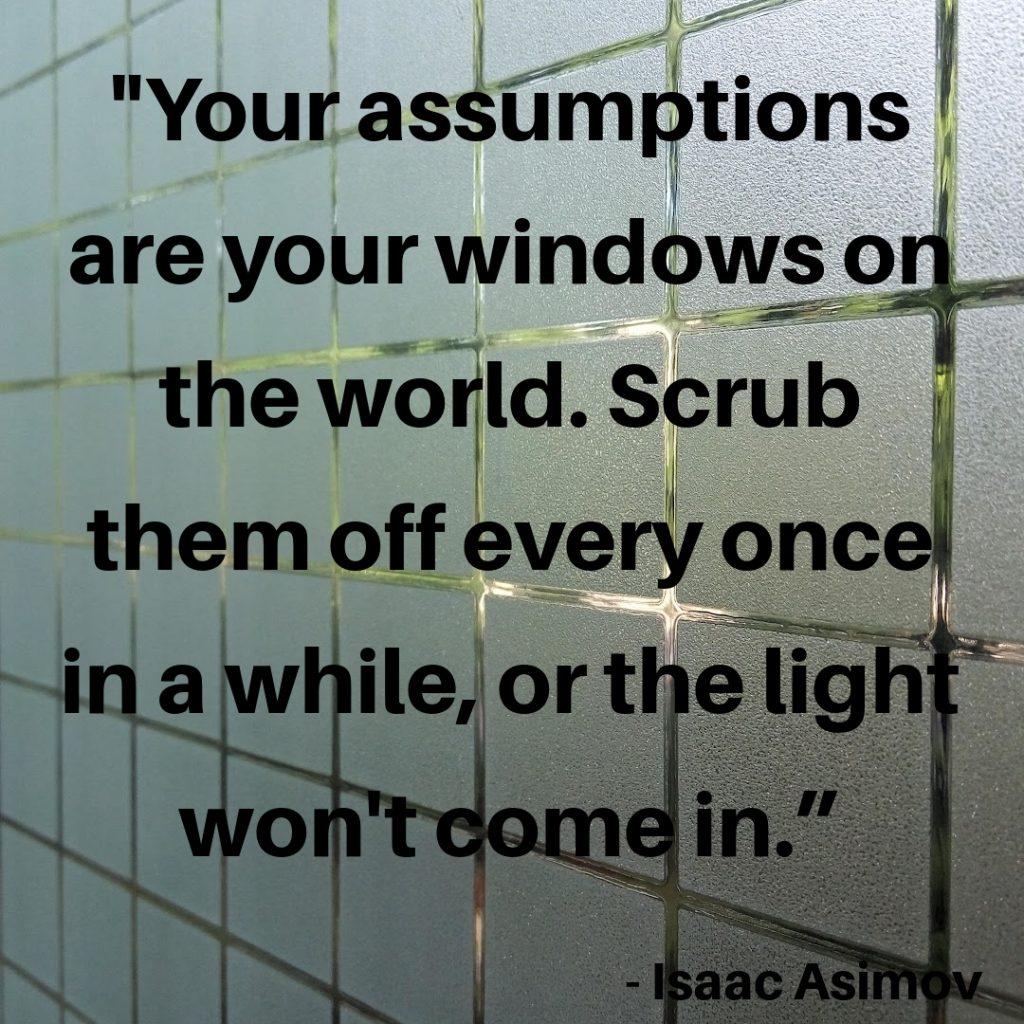Agatha Christie’s renowned literary detective, the enigmatic and highly eccentric Hercule Poirot, was known for many things: his egg-shaped head and perfectly groomed mustache; his meticulous sense of order and attention to detail; and most notably, his ability to “employ the little grey cells” to ascertain the truth of a case. Poirot says of his methods, “I own I have a certain disdain for tangible evidence. I prefer just to sit here and think.” In other words, the professed secret to Poirot’s sleuthing is a mind that is willing to see beyond the apparent facts. Poirot does not passively accept the one-dimensional facts of a case as they are presented to him; instead, he sees past the conspicuous evidence to determine the multifaceted truth. Poirot’s imagination is an active one, and he harnesses this critical and creative thinking to uncover solutions that were obscured by the obvious.

I fear that as a society we have begun to lose our own sense of imagination. With instant access to all the world’s information at our fingertips, we have grown lazy in our efforts to think for ourselves. We rush to Google for easy answers, take the information presented at face value, and unthinkingly draw conclusions based on the most perceptible facts. Rarely are we willing to dig deeper to uncover the whole truth of a story, or to see a situation presented from a slightly different angle, or even explore a few facts that lie outside the narrow margins of our personal bias.
Quick thinking and straightforward observations have their place. Even Agatha Christie (Poirot’s creator) notes in one book, “You gave too much rein to your imagination. Imagination is a good servant, and a bad master. The simplest explanation is always the most likely.” But the simplest explanation is not always the correct one, and we need our imaginative faculties if we are to be critically thinking truth-seekers and not merely unthinking fact-regurgitators.
My own failure of imagination was made obvious to me at the twins’ Mommy and Me Gymnastics class a few weeks ago. We had spent several weeks in the class with identical twin two-year-olds and the twenty-something woman I assumed (naturally, I thought) was their mom. I was intrigued by this woman’s German accent and the formal relationship she seemed to have with the girls’ grandmother who came to watch the class, but beyond these observations I didn’t give too much thought to the situation. My curiosity was piqued, though, when a second young woman showed up to one class with the mom and her twins. This new woman was also in her mid-twenties and held a sense of authority and familiarity with the girls, but her accent was Italian and unlike their “mom” she looked nothing like the young twins. My initial thought was that this was a two-mom family and that this second mom had gotten the day off of work to join in on the fun with the stay-at-home mom and their girls.
As class ended that day I struck up a conversation with the two “mothers” and all the pieces came together, forming a picture of how wrong I had been about the situation. The woman who had been bringing the girls to class was not, in fact, their mom but their au pair. This second woman, also not the mom, was the new au pair who would be taking the original caregiver’s place. What I had observed was not two mothers enjoying a gymnastics class with their daughters, but one au pair giving her replacement some on-the-job training!
I was embarrassed by how wrongly I had interpreted the situation, but the German-accented au pair laughed it off saying it happened all the time. In fact, she admitted she had stopped correcting people who referred to her as the twins’ mom, especially because she (the au pair) looked even more like the twins than their biological mother! We spent some time chatting about her time as an au pair, and I was fascinated to learn the ins and outs of the program. But I learned about more than childcare programs that day: I learned that making assumptions about people, their families, their roles, and their backgrounds can be a recipe for confusion.
The mom/au pair mixup was a very low-stakes scenario, one that had me laughing about my misassumptions without having to feel the weight of any repercussions (beyond some mild embarrassment). But how often does my failure of imagination prove detrimental? How often to I assume I know someone’s full life story or motives or situation without taking time to get to know them? How often have I misjudged a situation because I took it at face value, accepting a straightforward “reality” that masked an altogether different truth?

There are reasons for my lack of imagination: laziness, pride, a tendency to project my own experiences onto others, a fear of uncovering unchallenging or uncomfortable truths. . . These are reasons, yes, but they are not excuses. Just because seeing “outside the box” is difficult doesn’t free me from an obligation to try.
I want Hercule Poirot to be my model in this quest to become someone who sees all the facts (not just the convenient ones!) and takes the time to piece them into the picture they actually create and not the one I want them to make. To bring this out of the metaphorical and into the practical: I want to take a more open-minded and nuanced approach to the world around me. I want to absorb all of the facts of a situation before forming an opinion; take time to get to know someone before assuming things about them; set aside my biases and my hurriedness and my myopic perspectives whenever I encounter someone or something new—whether it’s a new person, environment, idea, or news story.
In the fifth chapter of Ephesians, Paul encourages his readers to “be imitators of God,” copying Him and following His example of practicing empathy, compassion, generosity, and unselfishness. To be imitators of God in my approach to the world is to look outside the convenient boxes and tidy categories of my limited imagination, opening my eyes to the expansive reality beyond. It is to exchange my narrow-mindedness for an acceptance of confusing but creatively complex world that is beyond my short-sighted understanding.
Father God, you know it goes against my natural grain to see things as they are and not as I expect or hope them to be. Give me unobscured eyes, a generously imaginative soul, and a heart that is open to the truth.